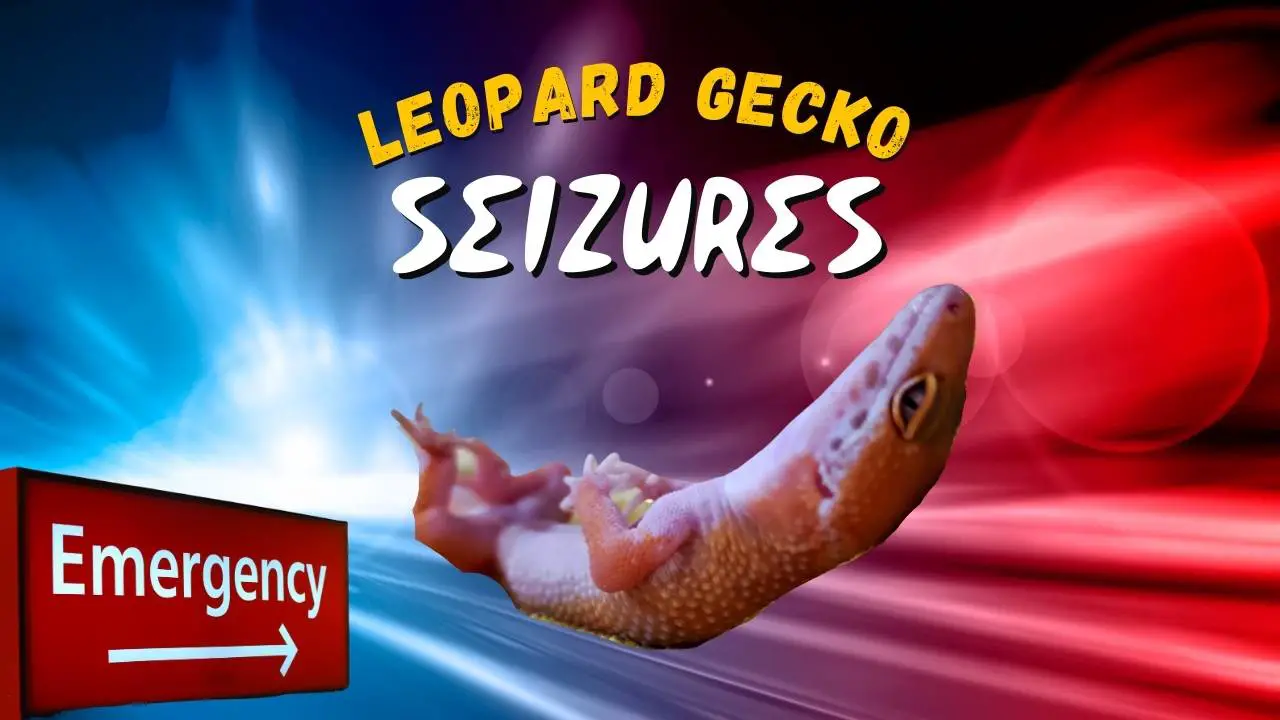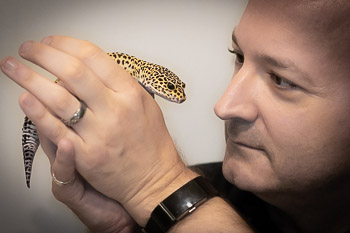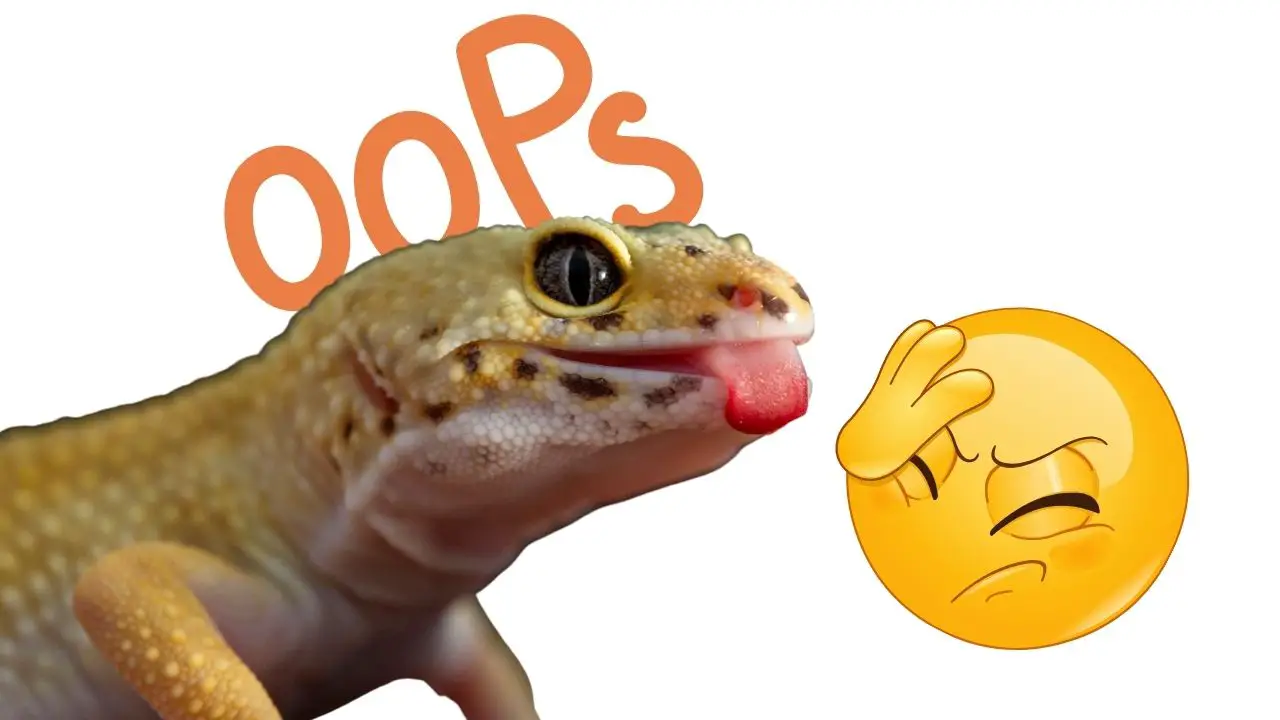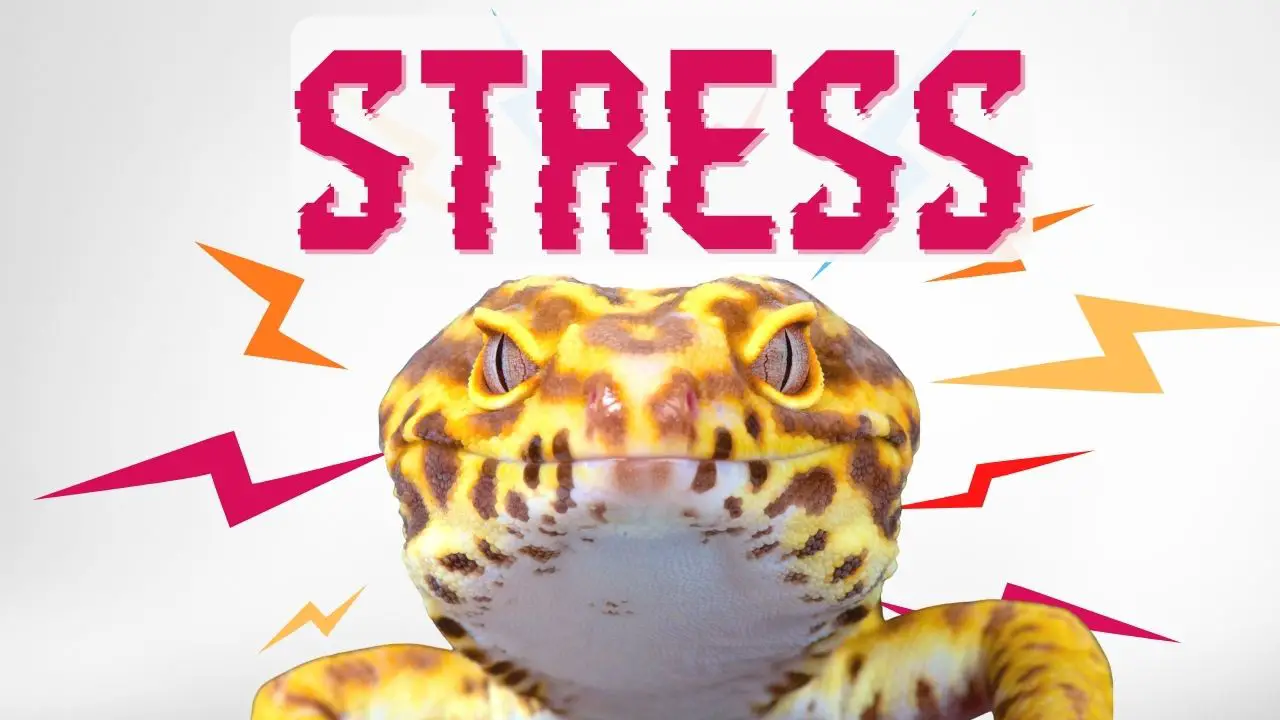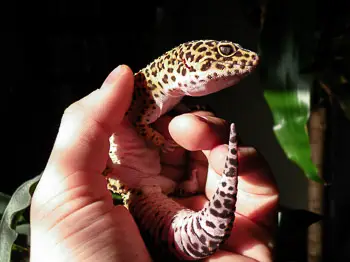Leopard geckos are generally docile and low-maintenance pets, but sometimes they can experience health problems that require medical attention. One such condition is seizures, which can be alarming for both the gecko and its owner.
Seizures in leopard geckos can be a worrying experience for any owner, as it is not always easy to tell if your pet is having a seizure. Understanding what causes leopard gecko seizures, knowing their symptoms and learning how to treat them can put your mind at ease.
What Is A Leopard Gecko Seizure?
A leopard gecko seizure is an abnormal behavior exhibited by leopard geckos. This condition may occur spontaneously or after exposure to certain substances.
Leopard gecko seizures are a serious and potentially life-threatening condition. Seizures in leopard geckos can be caused by a variety of factors, including neurological disorders, infections, and injuries. In some cases, the cause of a seizure may be unknown.
Symptoms of Seizures in Leopard Geckos
If your leopard gecko experiences a seizure, you may notice several different symptoms. These symptoms can vary in severity, and they may last for a few minutes or several hours. Some common symptoms of a leopard gecko seizure include:
- Convulsions: Convulsions are involuntary muscle contractions that can cause the leopard gecko’s body to shake or twist. These contractions may be mild or severe, and they may affect different parts of the body.
- Loss of consciousness: During a seizure, your leopard gecko may lose consciousness or become unresponsive. This can be alarming for gecko owners, but it is a common symptom of seizures in leopard geckos.
- Changes in behavior or appetite: Seizures can affect the leopard gecko’s brain and nervous system, which can cause changes in behavior or appetite. For example, your leopard gecko may become more aggressive or less interested in food.
- Other symptoms: In some cases, seizures in leopard geckos may be accompanied by other symptoms, such as drooling, vomiting, or difficulty breathing. These symptoms may be mild or severe, and they can indicate underlying health problems.
If you notice any of these symptoms in your leopard gecko, it’s important to seek veterinary care as soon as possible. A veterinarian will be able to diagnose the cause of the seizure and recommend appropriate treatment options. Seizures are a serious and potentially life-threatening condition, so it’s important to seek prompt medical attention.
How To Tell If Your Leopard Gecko Is Having A Seizure
Common telltale signs include erratic movements, food refusal, a blank stare and difficulty breathing. In addition, gecko owners should look out for focal seizures which cause physical jerking and muscle spasms in one part of the body. In more severe cases, a gecko may flip onto its back in what is known as a leopard gecko death roll.
If any of these symptoms are present over a period of time, it is crucial to seek professional veterinary help as soon as possible.
What causes seizures in leopard geckos?
Seizures in leopard geckos can be caused by a variety of factors, including neurological disorders, infections, and injuries. In some cases, the cause of a seizure may be unknown. These risk factors include:
- Infections: Bacterial or parasitic infections can cause seizures in leopard geckos. These infections can affect the brain and nervous system, causing inflammation and swelling. Infections can lead to seizures and other symptoms like lethargy or loss of appetite.
- Trauma: Leopard geckos can experience trauma due to accidents or injuries, such as falls or being handled too roughly. Trauma to the head, brain, or spinal cord can affect normal brain function and cause seizures.
- Excessive heat: If a leopard gecko is exposed to excessively high temperatures for an extended period of time, it can suffer from heat stroke, which can cause a seizure.
- Stress: Leopard geckos may be more prone to seizures if they are subjected to high levels of stress, such as due to changes in their environment or improper care.
- Metabolic disorders: Leopard geckos can develop metabolic disorders due to a variety of factors, such as a lack of proper nutrition or hydration, or an underlying medical condition. These disorders can cause seizures.
- Genetic conditions: Some leopard geckos may be genetically predisposed to certain medical conditions, including seizures. Enigma Syndrome is one such genetic disorder caused by inbreeding in enigma morphs. Any gecko carrying the gene mutation may be prone to the syndrome, not just enigma morphs themselves. Check out or article about the genetics of leopard gecko morphs to learn more.
- Exposure to Toxins: Leopard geckos can be exposed to toxins in their environment, such as pesticides or other chemicals, which can cause seizures.
It is important to note that seizures in leopard geckos can have multiple causes, and it may be necessary to conduct further testing to determine the underlying cause of the seizure.
It is important to monitor your leopard gecko’s behavior and physical condition, and to seek veterinary care if you notice any signs of illness or distress.
How do I recognize a seizure in my leopard gecko?
Seizures usually begin with a sudden change in posture followed by rapid jerking movements of the head. These movements may last anywhere from a few seconds to several minutes. If the animal stops moving, it may appear unconscious.
When a leopard gecko has a seizure, it will become stiff and rigid, and its eyes will roll back into their head. It may also stop breathing. If you notice any of these symptoms, please consult with a qualified veterinarian immediately.
What should I do if I suspect my leopard gecko has had a seizure?
If you observe any signs of a seizure in your leopard gecko, immediately remove the animal from the area where it was exposed to the substance causing the seizure. Do not attempt to treat the animal yourself unless instructed to do so by a veterinarian.
What treatments are available for seizures?
If your leopard gecko experiences a seizure, it’s important to seek veterinary care as soon as possible. A veterinarian will be able to diagnose the cause of the seizure and recommend appropriate treatment options. Treatment depends on the cause and severity of the seizure. Your vet may prescribe different treatment plans depending on the underlying cause of the seizures.
For example, if the seizure occurred due to excessive heat, cooling the environment may stop seizures. If the seizure occurred due to trauma, treatment may involve surgery. In some cases, treatment may involve medication to control the seizures, as well as supportive care to manage any underlying conditions.
Supportive care may include providing the leopard gecko with a safe and comfortable environment, as well as monitoring its vital signs and providing supportive measures such as fluids and warmth as needed.
For seizures cause by genetic disorders, unfortunately, there is no treatment. The genetic flaw is part of the gecko’s DNA and cannot be “cured.”
It is important to work closely with a veterinarian to develop a treatment plan that is appropriate for your leopard gecko’s specific needs. With the right treatment, it is often possible to control seizures and improve the gecko’s quality of life.
It’s also important to take steps to prevent future seizures in your leopard gecko.
To prevent seizures from occurring, look out for potential causes such as ear infections, metabolic bone disease and neurological disorders. Make sure your pet’s calcium levels are balanced by providing them with calcium supplements.
With this in mind, owners can give their pet reptiles the best chance at happy lives free from true seizures caused by seizure disorders or brain dysfunction.
Wrap Up – Leopard Gecko Seizures
Seizures are a serious and potentially life-threatening condition. By understanding the causes, symptoms, and treatment options for seizures, you can help to protect your leopard gecko’s health and well-being. By seeking veterinary care and taking preventive measures, you can help to prevent future seizures and ensure that your leopard gecko lives a long and healthy life.
For further reading, check out other common leopard gecko ailments, or signs your gecko may be dying.

